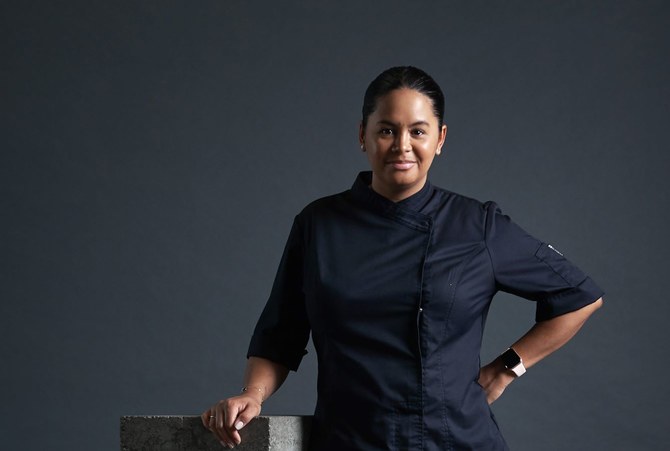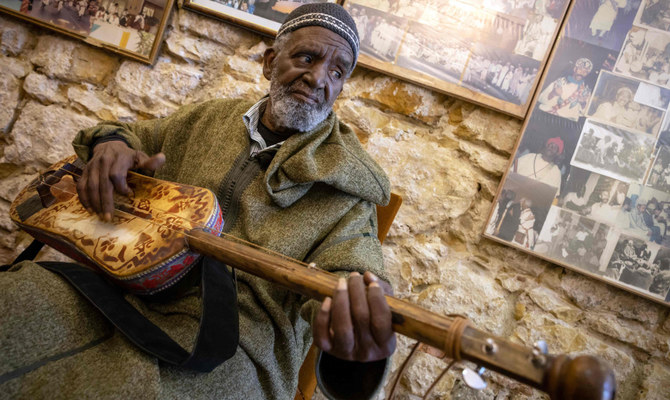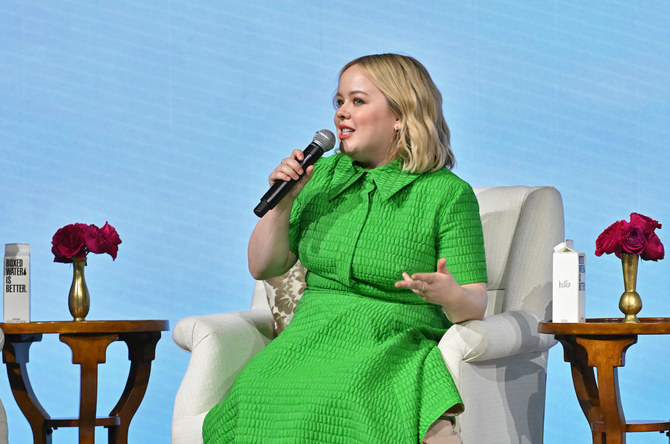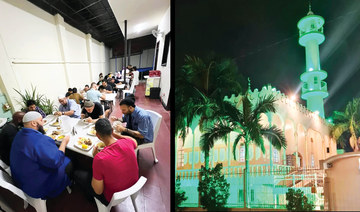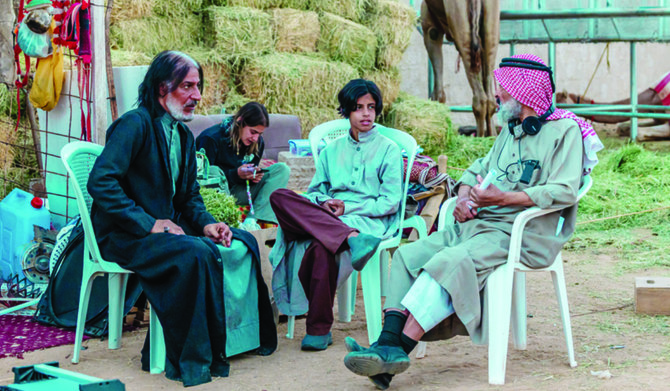DUBAI: Growing up in South Africa, Jill Lee Okkers almost gave up on her dream to work as a chef.
The face behind the flavors of the Tashas Group restaurants, which are making waves in the UAE and are soon coming to Saudi Arabia, was asked by her father to consider something a bit more stable.
“I wanted to become a chef — my parents told me that I couldn’t,” Okkers told Arab News. “This was 17 years ago, more or less. And at that time, it was still a very male-dominated industry. It still is on some levels.
“It was just hard and tough as an industry and I think my dad was very protective and said: ‘Listen, I think maybe you should get an office job.’
“And so I studied journalism... I love food and I love cooking. But I was also not sure going into this industry if it was going to actually be my career.”
This fall, Avli by Tashas, the contemporary Athenian restaurant in DIFC Dubai, announced the launch of a new a la carte menu. With the addition of 15 new dishes, it is reflective of founder Natasha Sideris’ love of Greek cuisine, along with an eye for perfection and attention to detail.
“It’s very much Natasha’s vision that we tried to put on a plate,” said Okkers. “A lot of the time, she gives me keywords. For example, with Avli’s latest menu, she said, ‘I just want fresh things.’ And we literally took that and made everything that’s on the menu as fresh as possible.
“So we went completely different to what we’re currently doing at Avli which was very warm and cooked and baked. In comparison to that, we’re now obviously making it very fresh, airy and light. So, a lot of the time, it’s her direction.”
With a Diploma in Culinary Arts, Lee Okkers has been in the hospitality field for over 15 years, holding positions such as Head Chef and Development Chef. She has had the honor of serving the likes of Sir Elton John and Annie Lennox.
When asked about when her fascination with food began, Lee Okkers points to family dinners from her childhood.
“I think we were a family that gathered around the table quite regularly. So, for us, food was always a gathering and almost like a safe space.
“Even still, to this day, we as adults still gather at 6pm to have dinner around the table. So, for me, it was always about seeing how people came together to eat, and the enjoyment that came from that as a whole and the satisfaction that came from having a full tummy.
“And I think also just the community of what was shared at a table; food definitely brings people together.”
Lee Okkers shares with Arab News her favorite dish, pet peeves … and the importance of salt.
What was the most common mistake you made when starting out?
Starting the heat too high, I think. So I tell my team, ‘always start low and slow,’ especially in a pan. If you start too high, it burns or over-cooks, and you need to start over again.
What’s your top tip for amateur chefs?
Always a good knife and a good chopping board. A lot of people tend to neglect that.
What one ingredient can instantly improve any dish, and why?
Oh gosh, salt! Also, a very good salt. I swear by Maldon — I season, cook and finish everything with it. And it’s actually not a ‘salty’ salt, unlike (others) that are quite acidic and powerful in the mouth. The best way to sweat onions is adding salt to extract the water, and Maldon is perfect for that.
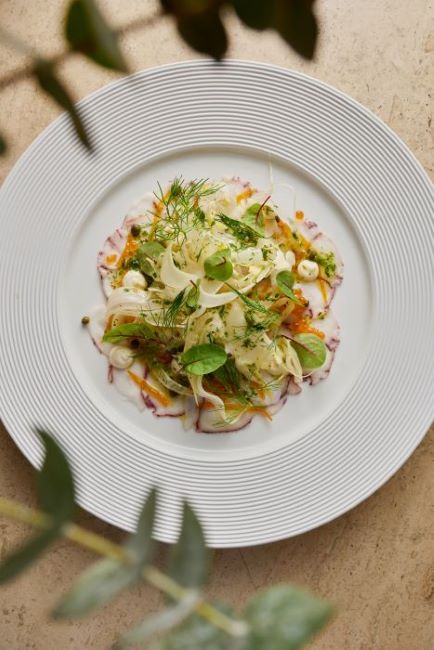
Octopus Carpaccio. (Supplied)
When you go out to eat, do you find yourself judging the food? And what’s the most common mistake or issue that you find?
I critique the service more than I do the food. I’m quite adaptable if anyone else is cooking for me, I’m super happy. I always tell people that I’m the easiest person to cook for. If someone offers to make me a toasted cheese sandwich, I’m like, ‘Oh, my God, thank you.’ But I think the biggest thing that I critique more than anything else is the service.
What is your favorite cuisine or dish when you go out?
Usually, I’m a big fan of a really good noodle or ramen bowl. And depending on where I am, I love a really good piece of fish. And just something that’s simple. It’s just garlic, olive oil, some lemon, nothing complicated. But again, it also takes a lot to get a piece of fish right.
What request or behavior by customers most annoys you?
I’m generally open to a lot of requests (but) we do get weird and wonderful ones. At one Tashas cafe, someone asks us to weigh all their food.
When someone wants to completely change a dish to suit a dietary requirement I’m just like, order something else or don’t leave your home. You’re going to eat something that I know you’re not going to enjoy, because it’s not what it should be. So there’s a fine line because I don’t mind requests. But I also don’t want people changing the full vision of what we want to present just because they don’t eat cheese or something.
What’s your favorite dish to cook and why?
I think my go-to dish at home is always a good robust steak, because it’s something that just comes together really easy. And you know, I put the potatoes in the oven, garlic in the pan with butter, do the steak. And then in another pan, just a quick sauce happening on the side. It’s the easiest thing to put together, and it happens in just 15-20 minutes, if not less.
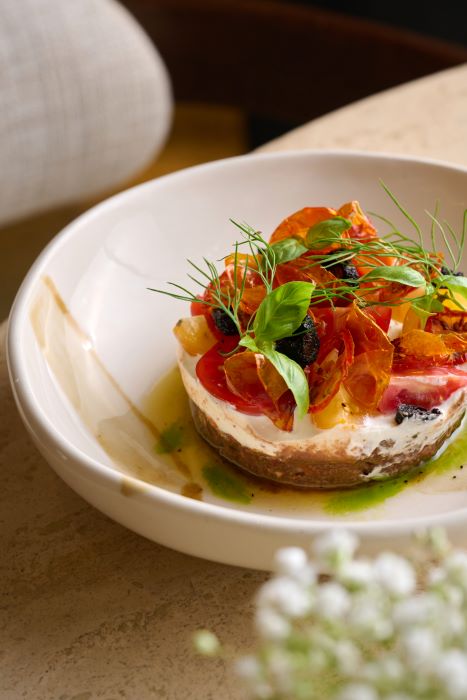
Dakos Sald. (Supplied)
RECIPE: Dakos Salad
Serves 4
Herby Vinaigrette:
90 mL of olive oil
45 mL of red wine vinegar
60 g of caster sugar
1 tablespoon of fresh oregano, chopped
1 tablespoon of fresh parsley, chopped
Salt and pepper to season
Seasoned Tomato Dressing:
250 g of beef tomatoes, grated
50 mL olive oil
1 teaspoon of fresh oregano, chopped fine
Salt and pepper to season
Whipped Feta:
250 g of feta
70 mL of cream
Using a handheld electric whisk, whip the cream and feta until combined and smooth.
To plate:
300 g of carob rusks
20 mL of balsamic reduction
Seasoned tomato dressing
400 g of heirloom cherry tomatoes, halved
100 g of kalamata olives, green and black, halved
Herby vinaigrette
Whipped feta
Salt and pepper to season
Garnish:
Olive oil
10 g of chopped dill
10 g of torn basil
Procedure:
Add the carob rusks, balsamic reduction and seasoned tomato dressing to a bowl. Mix well, allowing the carob rusks to soak up some of the dressing.
In another bowl, add the Heirloom cherry tomatoes, olives and the herb vinaigrette. Season well.
On a big plate, add the carob rusk mix and top with dollops of the creamed feta. Top the feta with the tomatoes and olives. Drizzle the top with any of the left-over dressing in the bowls.
Garnish with olive oil, chopped dill and torn basil leaves.
Notes:
Dehydrated tomatoes or olives add extra texture to the salad.
Maldon salt is preferred.



